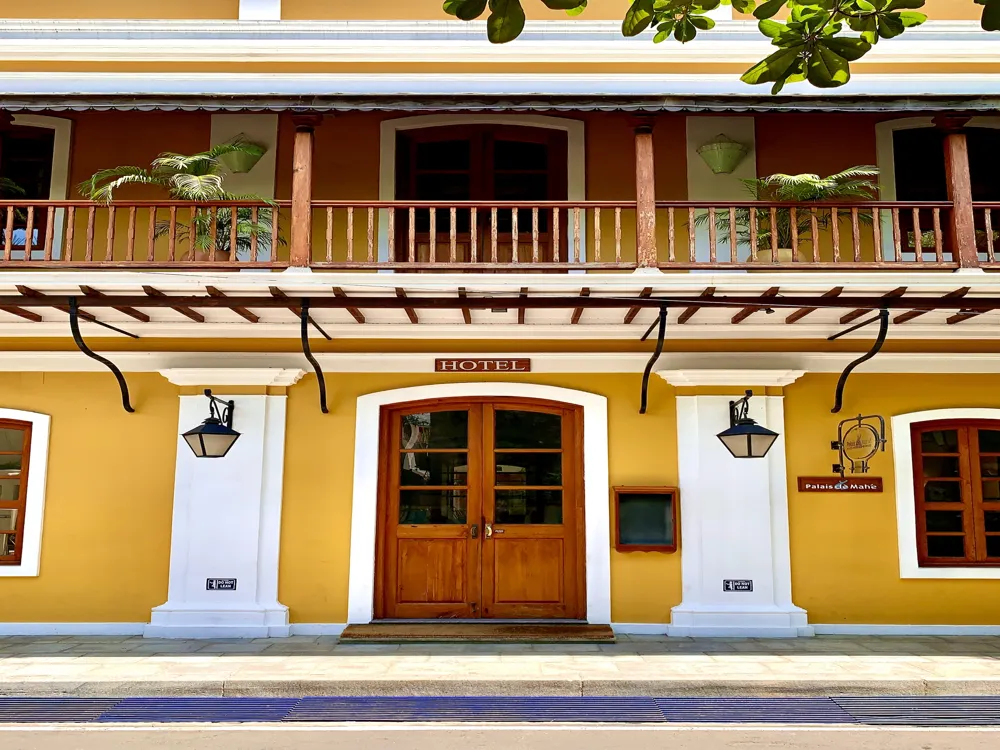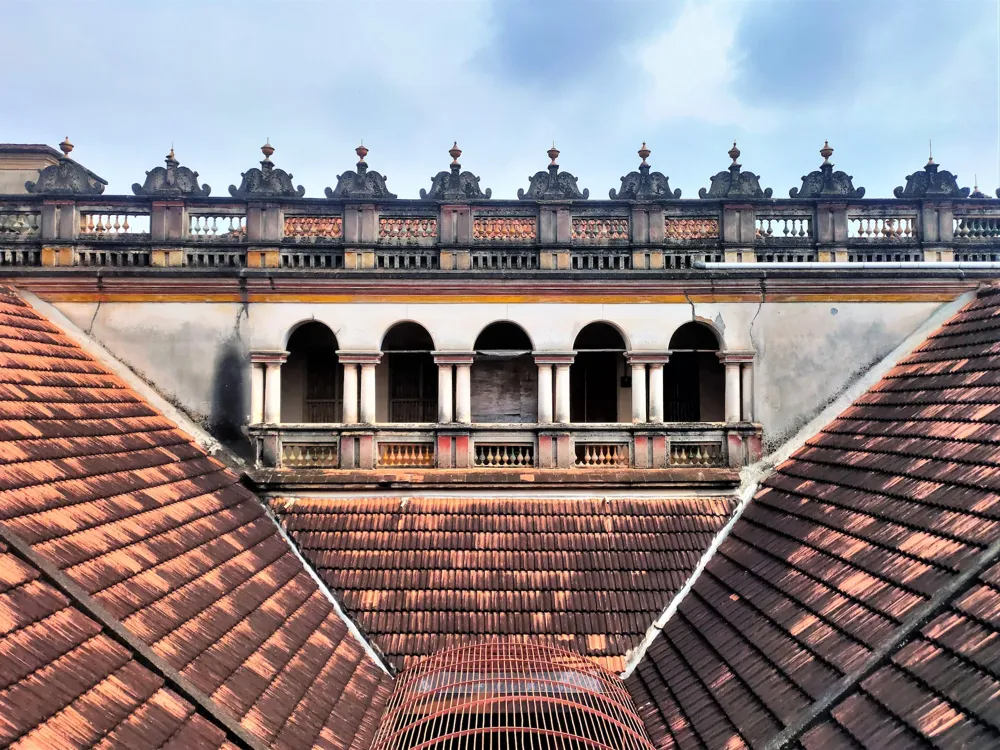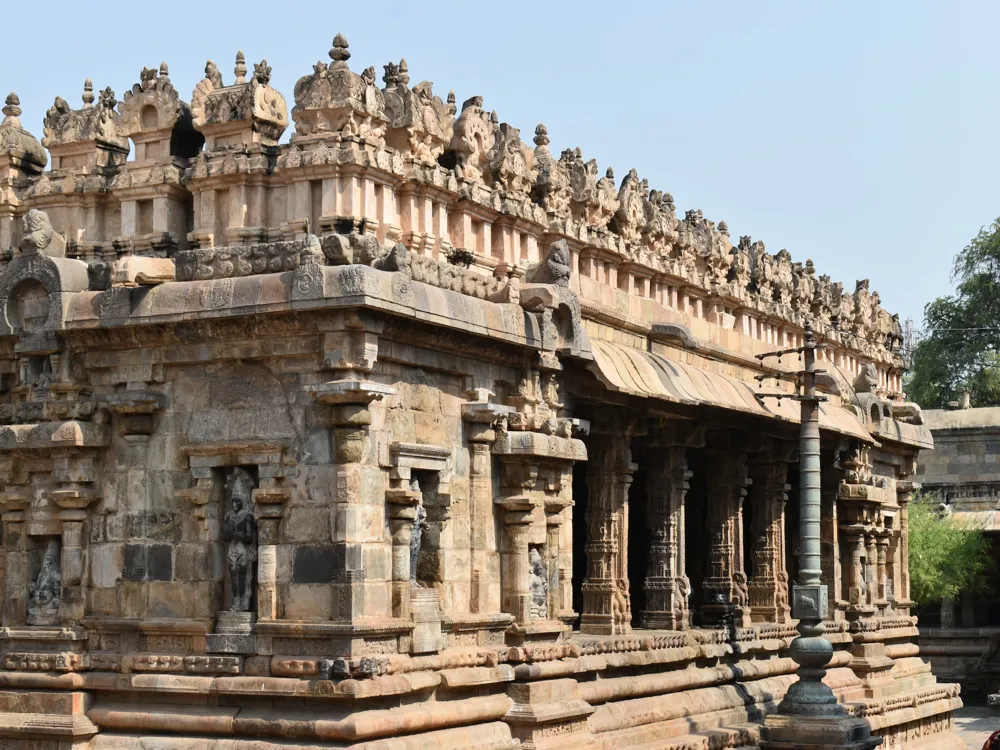Chidambaram, a town steeped in history and culture, is situated in the eastern part of Tamil Nadu, India. Renowned for its magnificent temples and rich cultural heritage, Chidambaram is a place where spirituality and artistry intertwine. This town is not just a destination; it's an experience that transports you back in time to an era of architectural brilliance and religious significance. The town's name, 'Chidambaram', is derived from the Tamil words 'Chit' and 'Ambaram' meaning 'wisdom' or 'consciousness' and 'sky' respectively, symbolizing the sky of consciousness. It's a town that resonates with the sounds of temple bells and the fragrance of incense, where every street and corner tells a story of faith, devotion, and art. Chidambaram's history is deeply intertwined with the Chidambaram Nataraja Temple, a testament to the town's enduring spiritual and historical significance. This temple, dedicated to Lord Shiva in his form as Nataraja, the Lord of Dance, stands as a symbol of the synthesis between arts, spirituality, and cosmology. The temple's history dates back over a millennium, with contributions from various dynasties such as the Cholas, Pandyas, and Vijayanagara Empire, each adding to its grandeur and opulence. Chidambaram has been a center of learning and religious activities for centuries. It is one of the five Pancha Bhoota Sthalas (temples representing the five elements) in South India, representing the element Akasha (ether or space). The town is also significant in the study of South Indian temple architecture and the history of dance, with the famous Ananda Tandava pose of Nataraja originating here. The cultural tapestry of Chidambaram is vibrant and diverse. The town is famous for its annual festivals, particularly the Natyanjali dance festival, which is a tribute to Lord Nataraja and attracts dancers from all over the world. The town is also home to the Thillai Kali Amman Temple, adding to its religious diversity. The cuisine, predominantly South Indian, offers a plethora of flavors that are both unique and tantalizing. Chidambaram's geographical landscape is as diverse as its culture. Nestled between two rivers, the Vellar and Coleroon, and near the Bay of Bengal, it presents a picturesque setting. The Pichavaram Mangrove Forest near Chidambaram is one of the world's largest mangrove jungles, offering an ethereal experience amidst nature's beauty. The architectural grandeur of Chidambaram is most prominently seen in the Chidambaram Nataraja Temple, a magnificent example of Dravidian architecture. This temple complex is an architectural marvel, illustrating the advanced engineering and artistic skills of the ancient Tamils. The Chidambaram Nataraja Temple is spread over 40 acres and is enclosed by four large gopurams (gateway towers) in each direction. The eastern gopuram is the tallest, showcasing intricate carvings and sculptures that narrate ancient Hindu myths and legends. The temple's layout is symbolic, representing the cosmic link between arts and spirituality. The sanctum sanctorum houses the idol of Nataraja, depicting Lord Shiva performing the Ananda Tandava (the dance of bliss). This idol is a quintessence of art, symbolizing the cosmic cycles of creation and destruction, as well as the daily rhythms of birth and death. The golden roof of the sanctum sanctorum represents the center of the universe. The temple walls and pillars are adorned with an array of sculptures and frescoes that depict various deities, mythological creatures, and scenes from Hindu epics. The Sabha (hall) of the temple, known as the 'Ponnambalam' or 'Golden Hall', is an architectural masterpiece, with its pillars producing different musical notes when struck. The Chidambaram Temple is not just a spiritual haven but also an engineering marvel. The temple's layout, based on ancient Tamil architectural principles, harmonizes with the natural elements. The temple's use of space, light, and materials demonstrates an advanced understanding of engineering and architecture. The temple's design is deeply symbolic, with its alignment and structure reflecting astronomical and religious significance. The shrine is designed such that during the equinoxes, the sun's rays fall directly on the Nataraja deity. This astronomical alignment highlights the temple's connection with the cosmos. In recent years, efforts have been made to preserve and restore the ancient architecture of the Chidambaram Temple. These initiatives ensure that this architectural and cultural heritage is protected for future generations. The ideal time to visit Chidambaram is between October and March when the weather is pleasant. During this period, you can also witness the grandeur of the Natyanjali Dance Festival. Visitors are advised to dress conservatively, respecting the religious sanctity of the temple. Photography inside the main temple complex is restricted. Chidambaram offers a variety of local cuisines that are a must-try. Accommodations ranging from budget to luxury are available, catering to all types of travelers. While the Nataraja Temple is the centerpiece, don't miss out on exploring the Pichavaram Mangrove Forest, Thillai Kali Amman Temple, and the local markets. Chidambaram is well-connected by road, rail, and air. The nearest airport is in Tiruchirapalli, about 195 km away. The town has its own railway station, and there are frequent bus services from major cities like Chennai and Puducherry.Overview of Chidambaram, Tamil Nadu
Historical Significance
Cultural Richness
Geographical Splendor
Architecture of Chidambaram
Temple Layout
Sanctum Sanctorum and the Cosmic Dance
Artistic Elements
Engineering Marvel
Religious and Astronomical Significance
Preservation and Restoration Efforts
Tips When Visiting Chidambaram
Best Time to Visit
Dress Code and Etiquette
Local Cuisine and Accommodation
Exploring Beyond the Temple
How To Reach Chidambaram
Khadi Handicraft store
Chidambram
Tamil Nadu
NaN onwards
View chidambram Packages
Chidambram Travel Packages
View All Packages For Chidambram
Top Hotel Collections for Chidambram

Private Pool

Luxury Hotels

5-Star Hotels

Pet Friendly
Top Hotels Near Chidambram
Other Top Ranking Places In Chidambram
View All Places To Visit In chidambram
View chidambram Packages
Chidambram Travel Packages
View All Packages For Chidambram
Top Hotel Collections for Chidambram

Private Pool

Luxury Hotels

5-Star Hotels

Pet Friendly




















